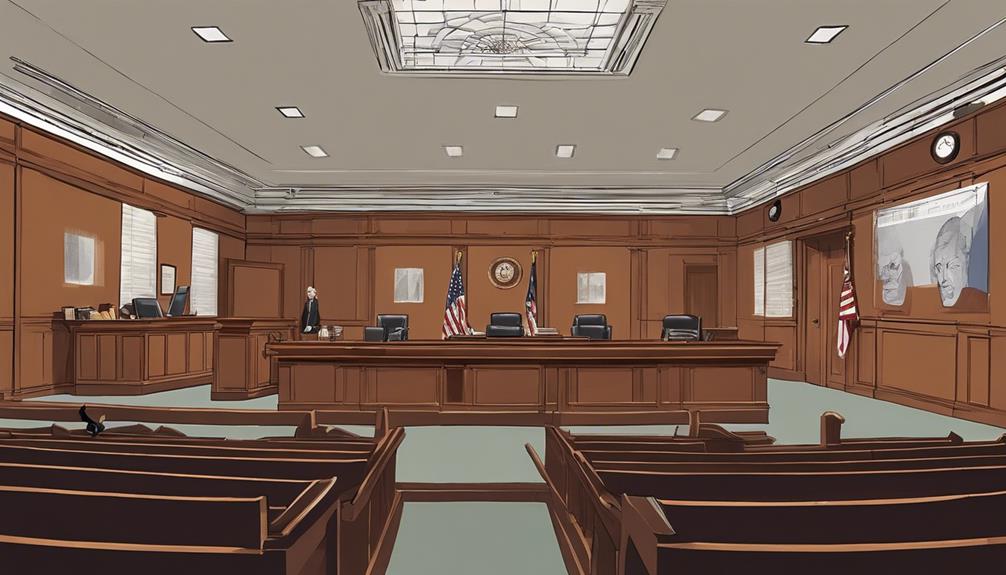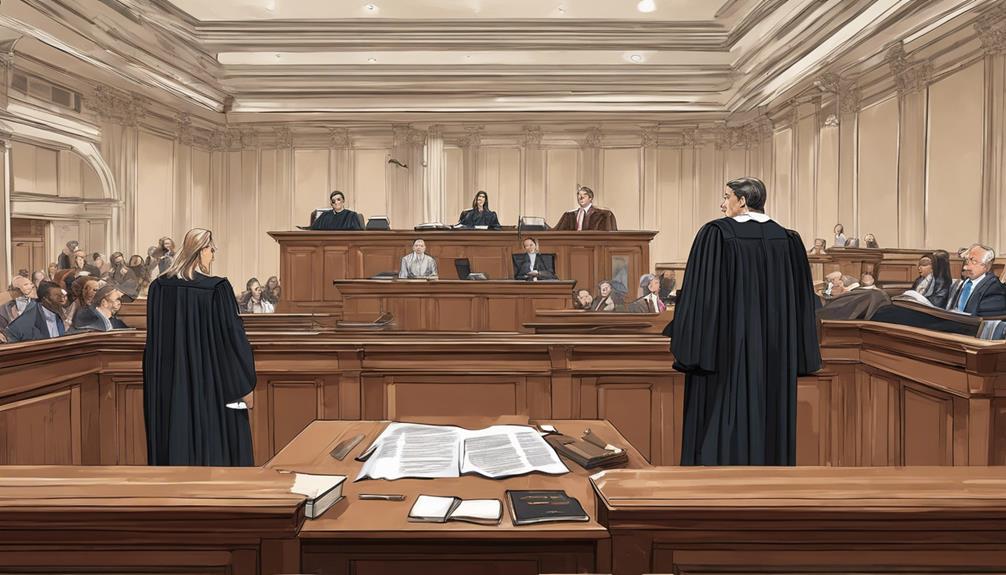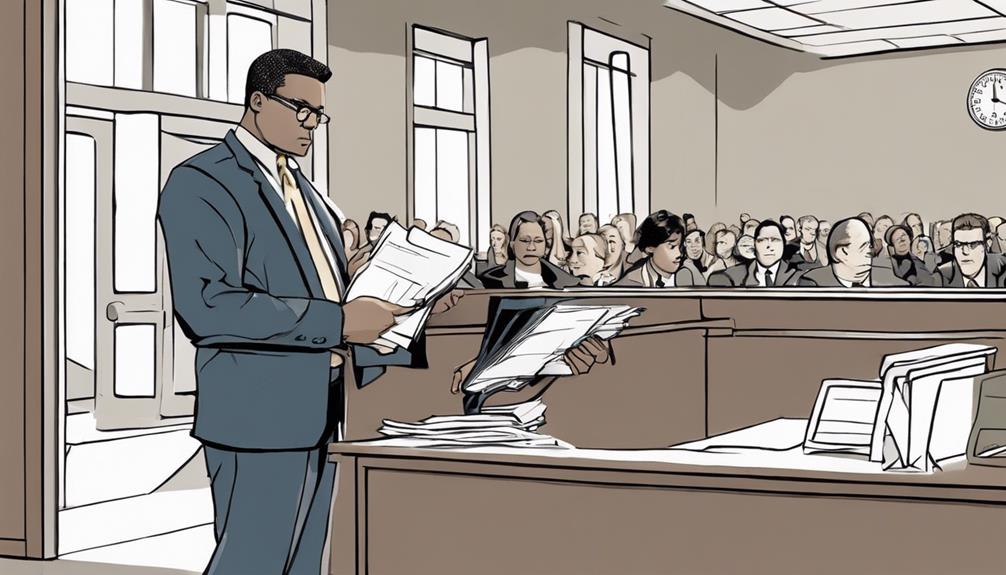In the legal arena, the Huntley Hearing acts as a safeguard, playing a crucial role in determining the credibility of statements in a criminal case.
As we navigate through the intricate web of justice, this pivotal pretrial process sheds light on the fine line between admissible evidence and potential coercion.
The delicate dance between truth and manipulation unfolds within this crucial hearing, offering a glimpse into the core principles of our judicial system.
Let’s explore how this essential procedure shapes the course of justice, ensuring a fair and transparent legal journey for all involved.
Key Takeaways
- Protects defendants’ rights against coerced confessions.
- Determines admissibility of defendant statements.
- Judge evaluates custody, Miranda rights, and voluntariness.
- Defense challenges coercion, ensuring fair trial process.
Origin of Huntley Hearing
The concept of Huntley Hearings traces its roots back to the pivotal legal case People v. Huntley in 1965, which set a precedent for evaluating the admissibility of defendant statements in criminal proceedings. Huntley Hearings are a type of hearing held in court to determine the voluntariness of a defendant’s statements, particularly confessions, before they can be admitted as evidence. These hearings are crucial for ensuring that the rights of defendants are protected and that any statements obtained by law enforcement weren’t coerced.
In a Huntley hearing, the Court carefully examines the circumstances under which the defendant’s statements were obtained. The main objective is to assess whether the confession was made voluntarily or if it was a result of coercion or undue influence. This thorough evaluation is essential to uphold the admissibility standards in criminal cases and to safeguard the constitutional rights of defendants against any form of forced confession. The Huntley hearing process plays a fundamental role in maintaining the integrity and fairness of the criminal justice system.
Purpose of Huntley Hearing
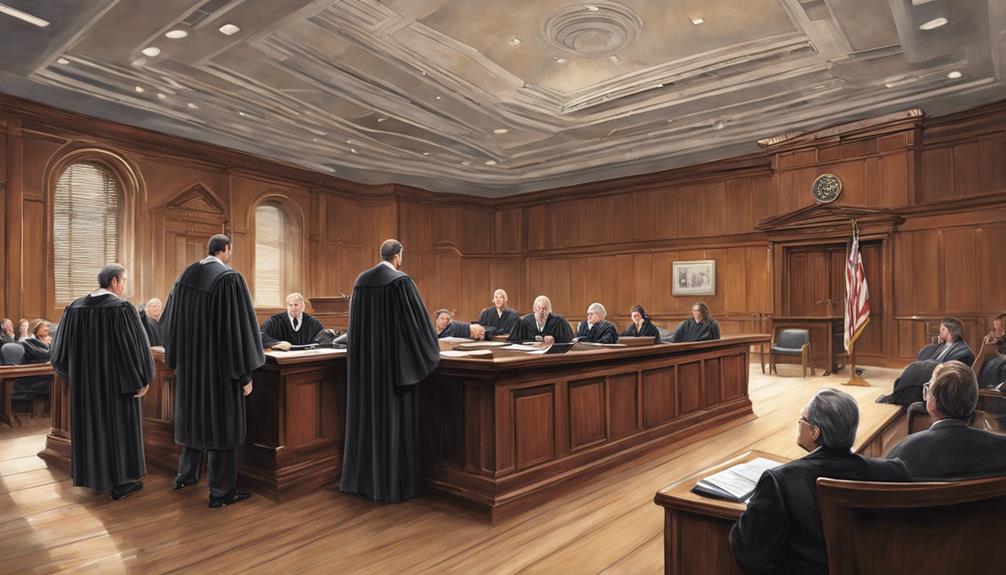
Examining the voluntariness of defendant statements, Huntley Hearings serve to determine the admissibility of accused statements at trial. These hearings are crucial in safeguarding the rights of the accused by ensuring that any statements made to the police were done so freely and without coercion. Defense attorneys play a significant role in these hearings, using them as a platform to challenge any coerced confessions or rights violations that may have occurred during the interrogation process.
The judge presiding over the Huntley Hearing ultimately makes the pivotal decision regarding the admissibility of the defendant’s statements in the upcoming trial. This decision heavily relies on the findings and arguments presented during the hearing. By thoroughly assessing the circumstances under which the statements were obtained, the judge determines whether the accused statements should be deemed admissible as evidence in the trial proceedings. The Huntley Hearing acts as a crucial checkpoint in ensuring that justice is served fairly and in accordance with the law.
Procedure of Huntley Hearing
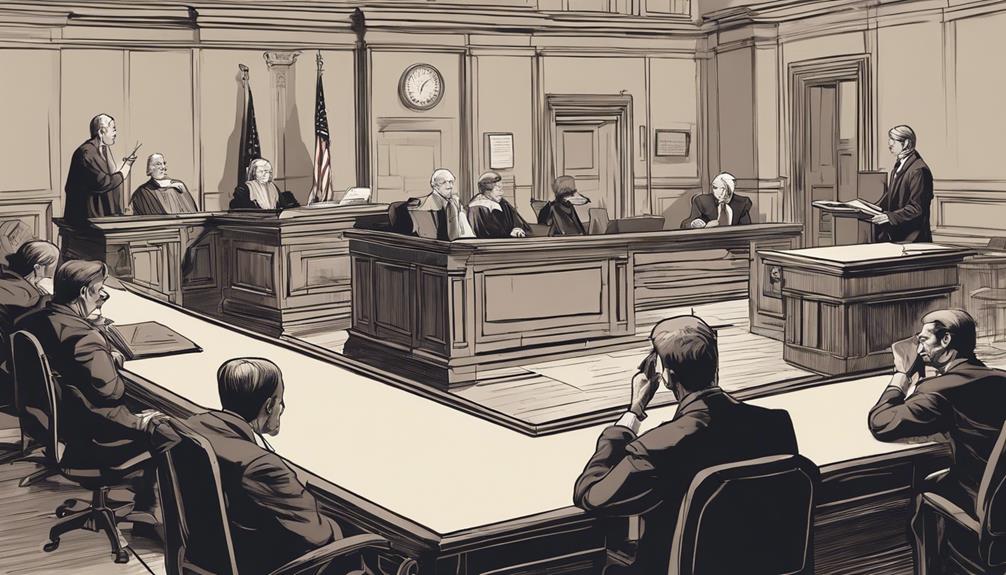
How is the procedure of a Huntley Hearing structured for evaluating the admissibility of defendant statements at trial? The Huntley Hearing process involves crucial steps in determining the admissibility of statements, safeguarding the defendant’s constitutional rights.
- The prosecution notifies the defense about the intent to use the defendant’s statements at trial.
- The defendant has the opportunity to challenge the admissibility of their statements during the hearing.
- The judge carefully assesses factors such as custody, Miranda rights, and the voluntariness of the statements.
- For statements to be admissible, the prosecution must prove their voluntariness beyond a reasonable doubt.
- The decision made regarding the admissibility of statements during the Huntley Hearing significantly impacts the subsequent trial proceedings.
In this critical evaluation, the judge plays a pivotal role in ensuring that defendant’s rights are protected, and that all statements used in the trial meet the necessary legal standards.
Factors Considered in Huntley Hearing
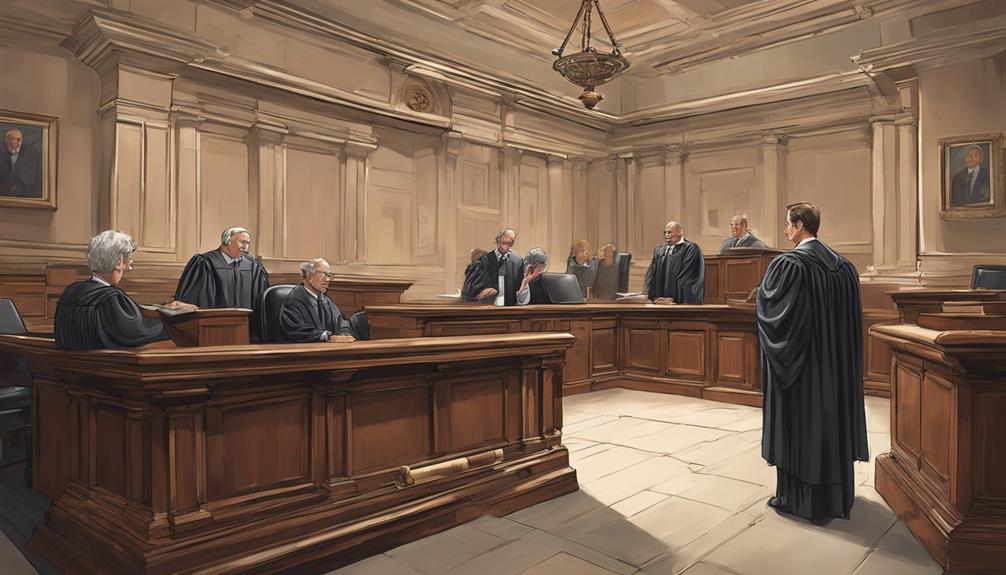
Moving from the discussion on the Procedure of Huntley Hearing, the assessment of various factors plays a critical role in determining the admissibility of defendant statements at trial through the Huntley Hearing process. In a Huntley Hearing, factors such as Custody, Miranda Rights compliance, Voluntariness of statements, Coercion, and Police Conduct are meticulously reviewed to ensure the protection of the Defendant’s Rights and the integrity of the statements presented. The table below outlines the key factors considered in a Huntley Hearing:
| Factors | Description |
|---|---|
| Custody | The defendant’s custody status when making statements is examined. |
| Miranda Rights | Evaluation of compliance with Miranda rights during the questioning process. |
| Voluntariness | Determining the voluntariness of the defendant’s statements. |
| Coercion | Examination of any coercion or undue influence in obtaining the statements. |
| Police Conduct | Review of police officers’ conduct during questioning for misconduct or rights violations. |
Significance of Huntley Hearing
The assessment of accused statements’ admissibility through a Huntley Hearing is a critical step in safeguarding defendants’ rights and ensuring a fair legal process. In New York County, these hearings are pivotal in determining whether evidence obtained through a confession can be submitted as admissible in court. Here are five reasons why Huntley Hearings hold significant importance:
- Huntley Hearings are essential in upholding the Fourth Amendment protections against unreasonable searches and seizures.
- The State law mandates that the prosecution must establish the voluntariness of accused statements beyond a reasonable doubt during these hearings.
- A judge must find voluntariness before a confession can be submitted as evidence, highlighting the meticulous nature of this legal process.
- Defense attorneys play a crucial role in challenging the admissibility of statements, ensuring a fair judicial process for the accused.
- The outcome of a Huntley Hearing can significantly impact the trial proceedings and eventual outcome, making it a key pre-trial process in criminal cases.
Frequently Asked Questions
What Is a MAPP Hearing New York?
In a Mapp Hearing in New York, we examine the admissibility of physical evidence obtained from illegal searches. Originating from the landmark U.S. Supreme Court case Mapp v. Ohio in 1961, this hearing centers on determining if evidence was unconstitutionally obtained, potentially leading to suppression upon violation discovery.
Failure to adhere to the Mapp rule can result in the reversal of a conviction if unlawfully obtained evidence is involved.
What Is a Single Hearing?
When we consider a Single Hearing, we’re looking at a consolidated judicial proceeding that efficiently addresses various legal matters related to evidence, confessions, prior records, and identification in one comprehensive session.
This approach streamlines the pre-trial process, saving time and resources for the court and all parties involved.
The judge presiding over a Single Hearing carefully evaluates the admissibility of different elements to ensure a fair and lawful trial process.
What Is a Wade Hearing in Ny?
A Wade Hearing in NY evaluates the admissibility of in-court identifications that may violate the Sixth Amendment right to counsel.
Originating from the U.S. Supreme Court case United States v. Wade in 1967, it aims to determine if the identification of the defendant in court was tainted by improper police procedures.
We focus on ensuring fairness and protecting the defendant’s rights during the identification process, using this process to challenge potentially suggestive identification procedures that could impact trial outcomes.
What Is a Suppression Hearing?
When we talk about a suppression hearing, it’s all about determining the admissibility of statements made by the accused to the police. This legal process focuses on whether those statements were given voluntarily and in line with the defendant’s constitutional rights.
The prosecution has the heavy task of proving the voluntariness of these statements beyond a reasonable doubt. Defense attorneys play a key role in challenging the admissibility of incriminating statements through questioning witnesses and presenting legal arguments.
Conclusion
In conclusion, the Huntley Hearing plays a critical role in safeguarding the rights of defendants in New York State by determining the admissibility of statements made to the police. It ensures that the legal process is fair and transparent, upholding the integrity of the criminal justice system.
But, have we truly explored all the nuances and complexities of this crucial pretrial procedure?
